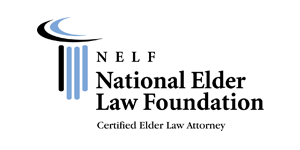HOW CAN WE HELP?
PRACTICE AREAS
AWARDS & ASSOCIATIONS
FOLLOW US
Gift Taxes: Why Most People Don’t Need to Worry About Them
| The annual gift tax exclusion rose from $14,000 in 2017 to $15,000 in 2018. There is a great deal of confusion and misinformation regarding the gift tax, the exclusion, and who even needs to worry about it in the first place.
Have no fear! Your Carney Dye attorneys are here to clear up the confusion.
The gift tax exclusion means that an individual can give up to $15,000 in 2018 to as many recipients as he or she would like without having to file a gift tax return. For example, parents who wish to give the maximum excluded amount to a child and the child’s spouse can give up to $60,000 total (each parent gives the child $15,000, and each parent gives the child-in-law $15,000).
We find that the confusion arises when someone wants to gift over that $15,000 amount to a single recipient. For most people, the consequences of doing so are nil. The IRS requires anyone who gives over the excluded amount to file a Form 709 Gift Tax Return with the IRS on April 15
of the year following the year in which the gift was made. Any amount gifted over the excluded amount must be reported.
What happens to that reported amount? Does the recipient of the gift have to pay taxes on it? No. Does the gift giver have to pay taxes on it? Not immediately, and in most cases, not ever.
In short, the gift giver must pay taxes on the reported amount only if he or she has a taxable estate at death. The estate tax exemption is currently $11.2 million per individual (or $22.4 million per couple). At death, any gifts reported on gift tax returns will be added to your total estate, and of this combined amount, any assets over the estate tax exemption will be taxed.
Therefore, due to the large estate tax exemption, the gift tax will never come into play for most people. There is always the possibility that Congress will dramatically lower the estate tax exemption in the future; therefore, the gift tax could matter for more people than it does now. But if you’re a financial average Joe, or even an above-average Joe, you can disregard the gift tax for all intents and purposes.
We would be happy to explain gift taxes to you in more detail or advise you on how to deal with them if you would be subject to the estate tax. Email us
or give us a call at (205) 802-0696.
|

The post Gift Taxes: Why Most People Don’t Need to Worry About Them appeared first on Carney Dye, LLC.




